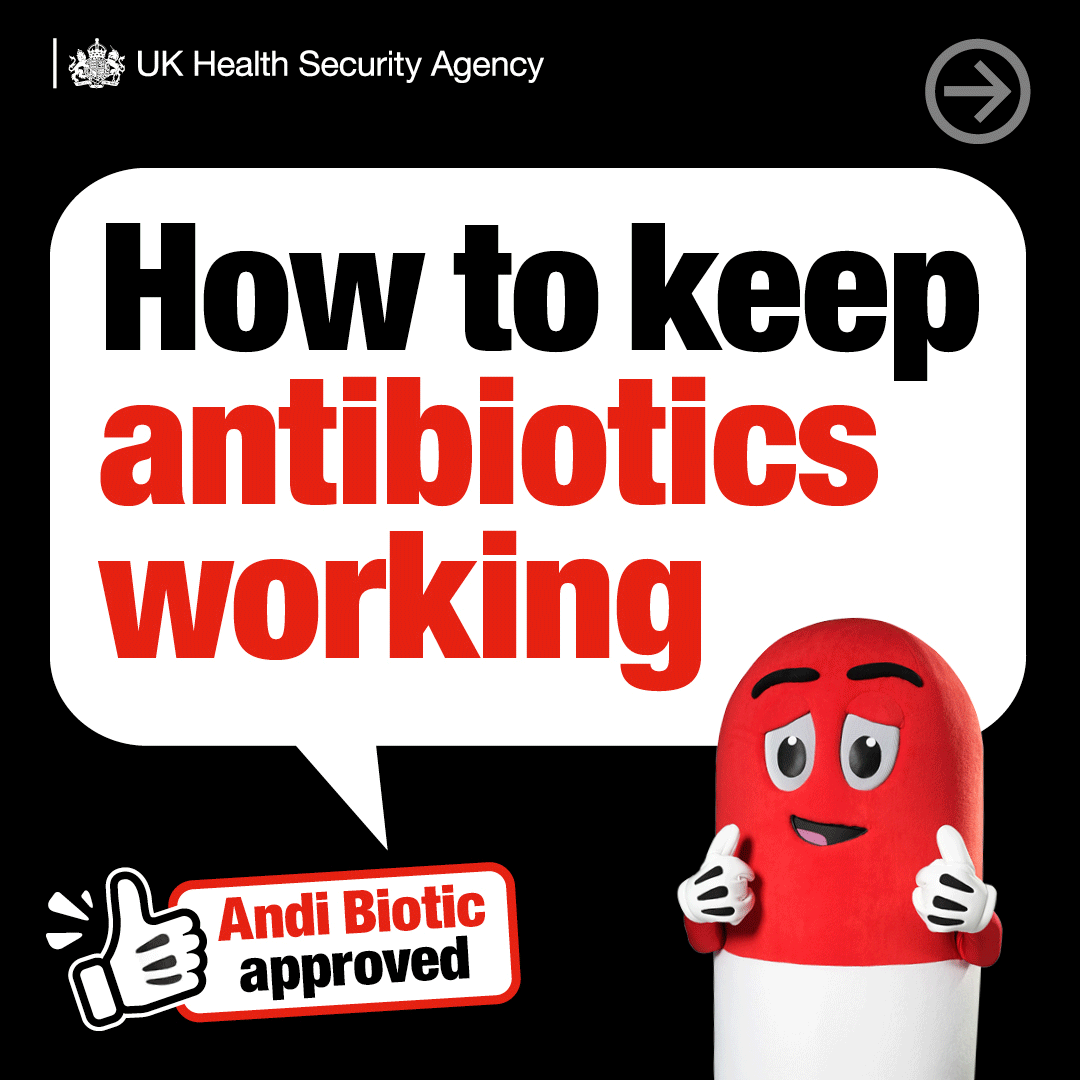We use cookies to help provide you with the best possible online experience.
By using this site, you agree that we may store and access cookies on your device. Cookie policy.
Cookie settings.
Functional Cookies
Functional Cookies are enabled by default at all times so that we can save your preferences for cookie settings and ensure site works and delivers best experience.
3rd Party Cookies
This website uses Google Analytics to collect anonymous information such as the number of visitors to the site, and the most popular pages.
Keeping this cookie enabled helps us to improve our website.
 World AMR Awareness Week (WAAW)
World AMR Awareness Week (WAAW)
November 17th to 24th 2025
What is antimicrobial resistance (AMR)?
Antimicrobials, including antibiotics, are used to prevent and treat infections in humans, animals, and plants. However, the more we use these medicines excessively or inappropriately, the more the bugs they target evolve to survive and the antimicrobials stop working. This is known as AMR. Examples of misuse include taking antibiotics for viral infections, such as colds, sore throats, or coughs, which cannot be treated by antibiotics.
Who does AMR affect?
AMR can impact anyone. It threatens our ability to treat common infections and to perform life-saving procedures. Without effective modern antibiotics and other antimicrobial treatments, patients facing health issues, such as cancer treatment, colorectal surgery, hip replacements, caesarean sections or those harmed in war zones, will be more likely to die from infections.
How serious is AMR?
Every day, antibiotic resistance means we struggle to treat patients.
Antibiotic resistance means that bacteria are less likely to respond to first line treatments, which can lead to serious complications, including bloodstream infections, sepsis and hospitalisation. People who get a bacterial infection that is resistant to one or more antibiotics are more likely to die within 30 days compared to those who have an antibiotic sensitive infection.
Antimicrobial resistance is not a crisis of the future, but one that is with us right now.
What can I do to reduce AMR?
Always follow your doctor, nurse or pharmacist’s advice as to whether you need antibiotics. If they are prescribed, take them as directed, and never share them with friends and family or save antibiotics for later use.
You can also reduce the risks of AMR by reducing infections in the first place - take up the vaccinations you are eligible for and practice good hygiene like hand washing.
Find out more by following this link.
Published: Nov 13, 2025

